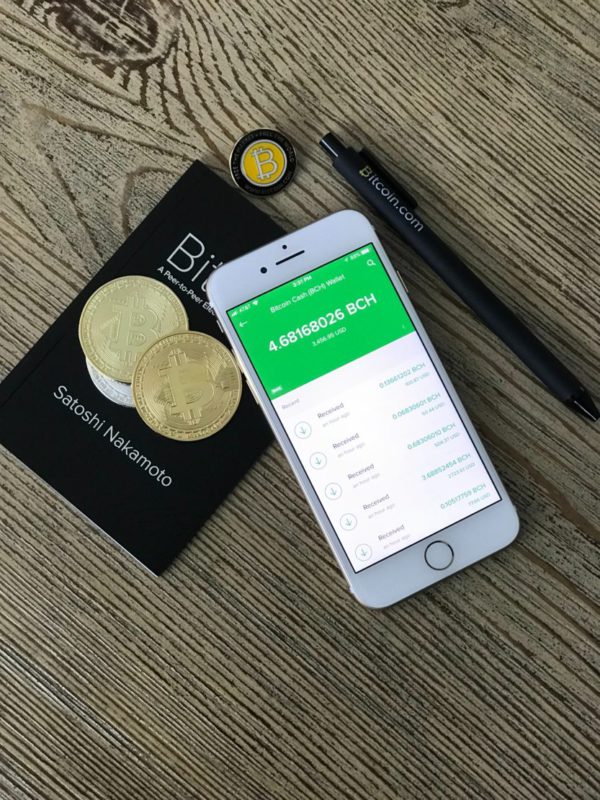Everything You Need To Know About Digital Gold And How To Earn It
In the world of cryptocurrencies, “Digital Gold” is a term often used to describe one of the most renowned cryptocurrencies: Bitcoin. Just as gold has been a store of value for centuries, Bitcoin has earned the nickname “Digital Gold” due to its potential to act as a digital store of value in the modern era. In this article, we’ll delve into the concept of Digital Gold, its properties, and how you can earn it.
What Is Digital Gold?

Bitcoin: The Original Digital Gold
Bitcoin, created by an individual or group using the pseudonym Satoshi Nakamoto in 2009, is the first and most famous cryptocurrency. It is often compared to gold due to several shared characteristics:
- Scarce Supply: Bitcoin has a capped supply of 21 million coins, mirroring the scarcity of gold. This scarcity is built into its code, ensuring a finite quantity.
- Store of Value: Like gold, Bitcoin is seen as a store of value and a hedge against inflation. Investors often turn to Bitcoin during economic uncertainties.
- Decentralization: Bitcoin operates on a decentralized blockchain, similar to the way gold isn’t controlled by any single entity or government.
- Security: Bitcoin’s blockchain technology ensures the security and immutability of transactions, providing a level of trust similar to gold’s physical properties.
🚨🤯DID YOU KNOW… Over 46 billion XRP, the digital gold of @Ripple, are securely held in escrows until April 2027!
Each month, on the first day, Ripple unveils a billion XRP, skillfully programmed within the XRP Ledger. The future of #Crypto is just around the corner! 🚁💰… pic.twitter.com/eYZ0jV3NZT
— Good Morning Crypto (@3TGMCrypto) October 31, 2023
How to Earn Digital Gold
Earning Bitcoin, or “Digital Gold,” can be achieved through various methods:
1. Mining:

Bitcoin mining is the process of validating transactions on the Bitcoin network and adding them to the blockchain. Miners are rewarded with newly created Bitcoins and transaction fees for their efforts. However, Bitcoin mining has become highly competitive and resource-intensive, requiring specialized hardware and significant electricity. As a result, it may not be a viable option for individual miners without access to substantial resources.
2. Buying and Holding:
The most straightforward way to earn Digital Gold is to buy Bitcoin and hold it in a digital wallet. As the value of Bitcoin can appreciate over time, simply holding onto your investment can be a profitable long-term strategy. This method, often referred to as “HODLing,” requires patience and a long-term investment perspective.
3. Staking:
Some blockchain networks, like Ethereum, offer the option of staking your cryptocurrency to earn rewards. While not equivalent to Bitcoin, staking can be a means to earn passive income from your digital assets.
4. Interest Earning Platforms:
Several platforms and services allow you to deposit your Bitcoin and earn interest on your holdings. These platforms may offer competitive interest rates and can be an attractive option for those who wish to keep their Bitcoin accessible while earning a return.
5. Earning in Bitcoin:

Many freelancers and businesses accept Bitcoin as a form of payment. If you work in a field where you can receive payments in Bitcoin, you can earn it directly. Additionally, some platforms and websites offer Bitcoin as compensation for completing tasks or services.
6. Trading and Investments:
Experienced traders may opt to earn Bitcoin through buying and selling it, taking advantage of price fluctuations. Alternatively, you can explore Bitcoin investments, such as participating in initial coin offerings (ICOs), cryptocurrency funds, or venture capital in blockchain projects.
7. Bitcoin Faucets and Airdrops:
Bitcoin faucets are websites that give away small amounts of Bitcoin for free to users. Airdrops are similar but usually involve receiving a new cryptocurrency for free. While these methods typically provide small amounts, they can be a fun and educational way to get started with Bitcoin.
Also, read – Top 3 Essentials For Bitcoin Mining And The Basics For Beginners
Considerations and Risks
Investing in Bitcoin, often dubbed “Digital Gold,” offers numerous opportunities, but it also comes with several considerations and risks that investors should be aware of. Here are key factors to consider when dealing with Bitcoin:
Volatility
Bitcoin’s price has been known for its extreme volatility. While the cryptocurrency has seen remarkable appreciation over the years, it has also experienced significant price fluctuations and sharp declines. Here are some points to keep in mind regarding Bitcoin’s volatility:
- Historical Volatility: Bitcoin’s price history is characterized by both rapid surges and sudden declines. Investors should be prepared for the possibility of substantial price swings.
- Market Sentiment: Bitcoin’s price is often influenced by market sentiment, news events, and macroeconomic factors. This can lead to rapid changes in price.
- Long-Term Perspective: To manage the risk associated with Bitcoin’s volatility, consider taking a long-term perspective. Many investors choose to “HODL” (a term used to describe holding Bitcoin for an extended period) and wait for the price to appreciate over time.
Security
Protecting your Bitcoin investments is of paramount importance. The decentralized and irreversible nature of cryptocurrency transactions means that security is crucial to avoid losses:
- Secure Wallets: Use secure, reputable wallets to store your Bitcoin. Hardware wallets, paper wallets, and multi-signature wallets are considered highly secure options.
- Private Keys: Safeguard your private keys, which are used to access and manage your Bitcoin. Never share them with anyone and store them in a secure and confidential manner.
- Beware of Scams: Be vigilant against scams, phishing attempts, and fraudulent schemes. Verify the authenticity of any service, exchange, or investment opportunity related to Bitcoin.
- Regular Updates: Keep your wallet software and security measures up to date. Software updates often include security enhancements.
Regulations
Cryptocurrency regulations vary by country and are evolving rapidly. It’s essential to be aware of the legal and tax implications of dealing with Bitcoin in your jurisdiction:
- Legal Status: Some countries have embraced cryptocurrencies, while others have imposed strict regulations or outright bans. Ensure you are compliant with the laws in your area.
- Taxation: Understand the tax regulations related to Bitcoin in your country. Cryptocurrency transactions may be subject to capital gains tax or other tax requirements.
- AML and KYC: Many exchanges and services implement Anti-Money Laundering (AML) and Know Your Customer (KYC) procedures. Complying with these requirements is essential for accessing certain services.
- Reporting: In some jurisdictions, you may be required to report your cryptocurrency holdings and transactions to tax authorities. Ensure you are familiar with your reporting obligations.
Diversification
Diversifying your investments is a well-established strategy to manage risk and achieve a balanced portfolio:
- Risk Management: Spreading your investments across different asset classes, including traditional assets like stocks and bonds, can help mitigate the risk associated with any single asset, including Bitcoin.
- Portfolio Balance: Consider your financial goals, risk tolerance, and investment horizon when determining the proportion of your portfolio allocated to Bitcoin. Diversification can help you balance your risk and potential rewards.
- Staying Informed: Keep abreast of the latest developments in the cryptocurrency market and maintain a diversified portfolio that aligns with your investment strategy.
Investing in Bitcoin offers exciting opportunities, but it also entails considerations and risks that should not be overlooked. Bitcoin’s volatility, the importance of security, regulatory compliance, and the benefits of diversification are all key factors to keep in mind when engaging with the world of Digital Gold. As the cryptocurrency market continues to evolve, staying informed and adopting prudent investment practices is essential for successful participation.
https://twitter.com/i/status/1718267306923450806
What is the future of digital gold?
- Continued Adoption and Acceptance: As Bitcoin’s acceptance continues to grow, it may become an integral part of the global financial landscape. Increasing numbers of individuals, institutions, and businesses are likely to adopt Bitcoin as an alternative store of value, similar to gold.
- Store of Value: Bitcoin is likely to maintain its status as a store of value and a hedge against inflation. As concerns about traditional fiat currencies persist, Bitcoin’s digital scarcity and decentralized nature may make it an appealing option for preserving wealth.
- Global Integration: Bitcoin’s adoption is expanding worldwide. It’s used as a means of transferring value across borders and serving the unbanked and underbanked populations. This trend may continue, contributing to its global integration.
- Institutional Investment: Institutions, including hedge funds, family offices, and corporations, are increasingly considering Bitcoin as an investment asset. As these entities allocate significant capital to Bitcoin, its market maturity and acceptance may increase.
- Regulatory Evolution: The regulatory environment for cryptocurrencies is expected to evolve. While this may introduce new challenges, it could also bring greater clarity and legitimacy to the market, potentially attracting more mainstream investors.
- Technological Advancements: Bitcoin’s underlying technology is continually evolving. Improvements in scalability, security, and privacy features may make it even more practical and accessible for everyday use.
- Financial Products: Financial products based on Bitcoin, such as Bitcoin exchange-traded funds (ETFs) and futures contracts, are being introduced in various jurisdictions. These products may provide additional avenues for investors to gain exposure to Bitcoin.
- Market Maturation: The Bitcoin market has come a long way in terms of liquidity, trading infrastructure, and price discovery. As it matures, it may become more stable and less susceptible to extreme volatility.
- Competition and Innovation: Other cryptocurrencies and digital assets may compete with Bitcoin. While Bitcoin’s network effect and recognition give it an edge, competition can drive innovation and improvements in the space.
- Environmental Concerns: Addressing concerns about Bitcoin’s energy consumption and environmental impact is likely to be a priority. Innovations in sustainable mining practices and a transition to more eco-friendly consensus mechanisms may be on the horizon.
- Integration with Traditional Finance: Greater integration of Bitcoin into traditional financial systems, including payment processing and lending, could enhance its utility.
- Evolution of the DeFi Ecosystem: Bitcoin’s presence in the decentralized finance (DeFi) space may evolve, creating new use cases and opportunities for financial services.
It’s important to note that the future of Bitcoin and its role as Digital Gold is subject to many variables, including regulatory developments, market dynamics, and technological advancements. While it holds significant promise, Bitcoin also carries risks, including price volatility and regulatory uncertainty. As such, investors should approach Bitcoin with careful consideration and a long-term perspective. The cryptocurrency space continues to evolve, and Bitcoin’s future will be influenced by a combination of market forces, technology, and social acceptance.
Stay informed with daily updates from Blockchain Magazine on Google News. Click here to follow us and mark as favorite: [Blockchain Magazine on Google News].
Get Blockchain Insights In Inbox
Stay ahead of the curve with expert analysis and market updates.
latest from tech
Disclaimer: Any post shared by a third-party agency are sponsored and Blockchain Magazine has no views on any such posts. The views and opinions expressed in this post are those of the clients and do not necessarily reflect the official policy or position of Blockchain Magazine. The information provided in this post is for informational purposes only and should not be considered as financial, investment, or professional advice. Blockchain Magazine does not endorse or promote any specific products, services, or companies mentioned in this posts. Readers are encouraged to conduct their own research and consult with a qualified professional before making any financial decisions.

 Bitcoin
Bitcoin  Ethereum
Ethereum  Tether
Tether  XRP
XRP  Solana
Solana  Dogecoin
Dogecoin  USDC
USDC  Cardano
Cardano  Lido Staked Ether
Lido Staked Ether  TRON
TRON  Sui
Sui  Avalanche
Avalanche  Wrapped stETH
Wrapped stETH  Toncoin
Toncoin  Chainlink
Chainlink  Shiba Inu
Shiba Inu  Stellar
Stellar  Wrapped Bitcoin
Wrapped Bitcoin  Hedera
Hedera  Polkadot
Polkadot  WETH
WETH  Bitcoin Cash
Bitcoin Cash  LEO Token
LEO Token  Uniswap
Uniswap  Litecoin
Litecoin  Pepe
Pepe  Hyperliquid
Hyperliquid  Wrapped eETH
Wrapped eETH  NEAR Protocol
NEAR Protocol  USDS
USDS  Ethena USDe
Ethena USDe  Aptos
Aptos  Internet Computer
Internet Computer  Aave
Aave  Mantle
Mantle  Cronos
Cronos  POL (ex-MATIC)
POL (ex-MATIC)  Ethereum Classic
Ethereum Classic  MANTRA
MANTRA  Render
Render  Monero
Monero  Bittensor
Bittensor  Artificial Superintelligence Alliance
Artificial Superintelligence Alliance  Dai
Dai  Tokenize Xchange
Tokenize Xchange  Filecoin
Filecoin  Virtuals Protocol
Virtuals Protocol 






